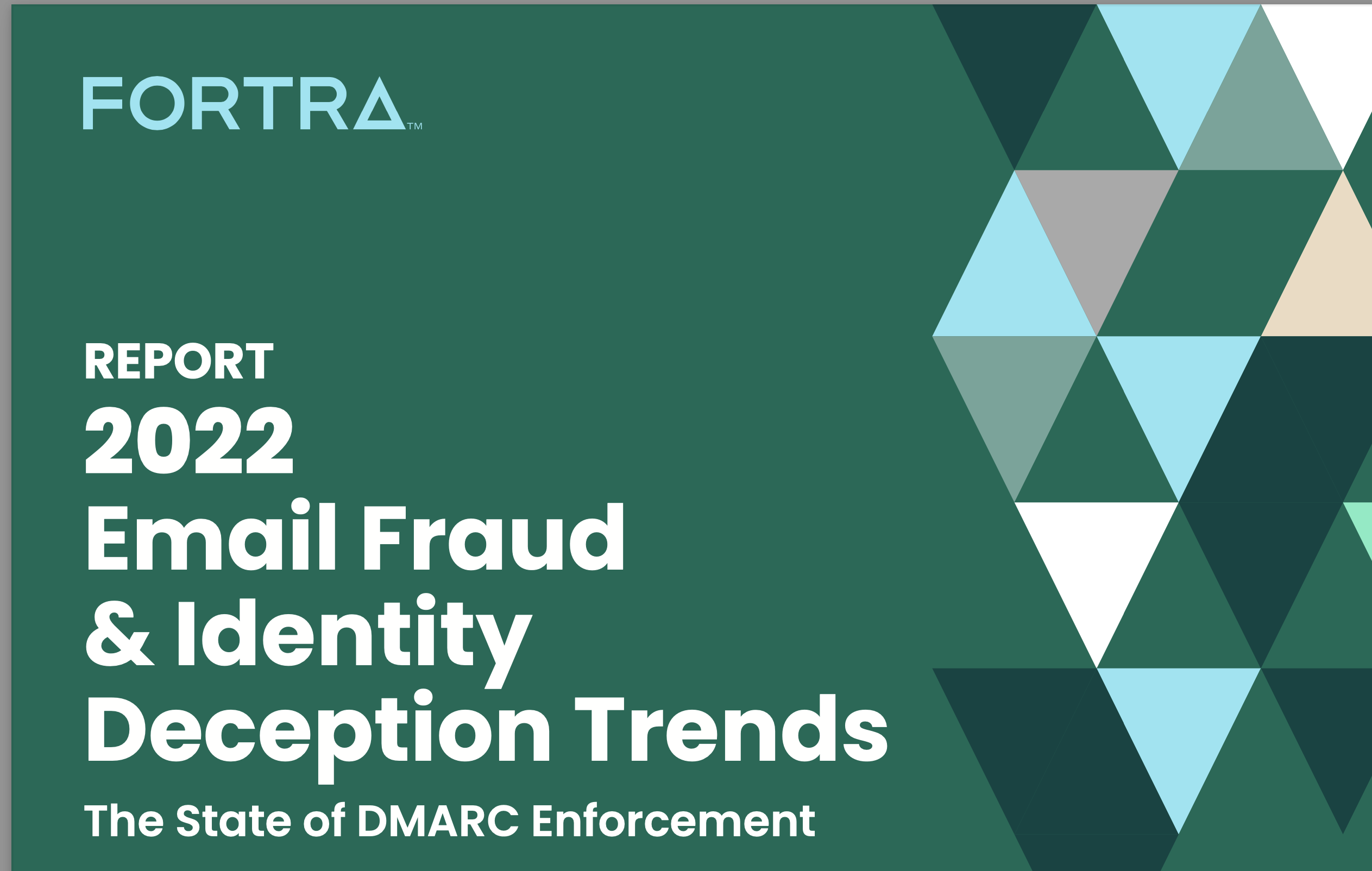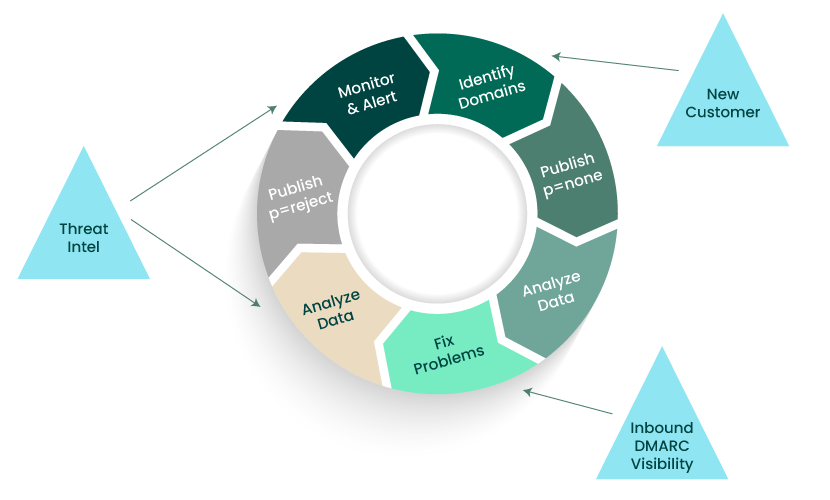What is Email Spoofing?
Email spoofing impersonates your brand with domain spoofing and lookalike emails designed to defraud customers. When your brand is used, consumers lose trust. By not protecting your email-sending domains, you risk blocked mail, low deliverability, and poor performance on email marketing campaigns.
Anatomy of a Spoofing Attack
PHASE 1: Target
Acquire List
Today's cybercriminals use sophisticated techniques to build target lists, such as leveraging consumer databases and harvesting email addresses stolen through corporate data breaches or purchased on the dark web.
PHASE 2: Deliver
Launch Campaign
Email campaigns sent to these lists impersonate brands that consumers know and trust and employ identity deception techniques, such as lookalike domains and domain spoofing, to appear legitimate to recipients.
PHASE 3: Deceive
Create Urgency
By creating a sense of urgency through alerts, notifications, password checks and more, these messages use carefully calibrated ploys to trick users into following their call-to-action. Phishing emails typically have an open rate of more than 30%.
PHASE 4: Click
Elicit Response
Recipients click phishing site links designed to mimic the impersonated brand's login screen. Once credentials or other personal information is submitted, it's unwittingly surrendered to the criminals.
PHASE 5: Exploit
Reap Rewards
The criminals or their agents log into the victim's legitimate account and transfer money, use a stolen credit card number, or place an order to perpetrate the fraud. Beyond financial losses, consumers spend an average of 23 hours cleaning up the mess—and vent frustration at impersonated brands.
Fortra's Agari Advantage
Boosts Email Delivery, Opens & Conversations
Customers impacted by an email spoofing phishing attack impersonating your brand can disengage from your email campaigns, lose faith in your brand, and may even leave with their business.
According to our research, a sizable proportion of “no record” and “monitor only” policies underscores the fact that large organizations and brands can be impersonated, and thus are targets for phishing campaigns and risk financial harm.


Automates and Accelerates Authentication
Discovery of authorized and unauthorized third-party senders for DMARC authentication is a cumbersome process.
Agari DMARC Protection creates, hosts, and manages the key SPF, DMARC, and DKIM records required for DMARC authentication, streamlining and simplifying the most time-consuming aspects of authenticating outbound email.
Delivers Complete Protection Against Phishing
Criminals go to great lengths to spoof your brand, even registering lookalike domains complete with DMARC authentication.
Agari spots all types of impersonation tactics on your domains, enabling you to root out phishing emails and get back to the business of engaging with your customers over email.

Agari DMARC Protection
Automate DMARC email authentication and enforcement to prevent brand abuse and protect your consumers from costly phishing scams with Agari DMARC Protection.
See why global companies and customers, including Adobe and Merck, trust Agari DMARC Protection to protect their brand and instill trust in the eyes of their customers.
Receive a live walkthrough of the software from an Agari security expert and get assistance with any questions you may have.